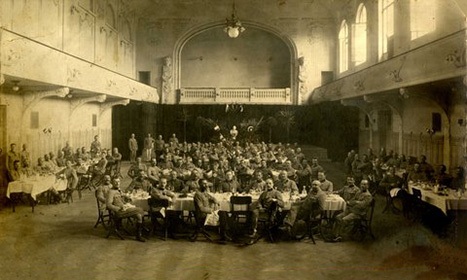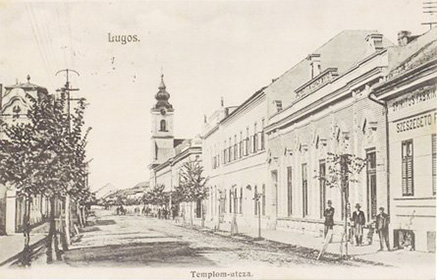The building housing the hotel is one of the oldest in Lugoj.
The hotel dates back to 1835. Initially named "Drei Rosen" (Three Roses), then "Kaiser Gasthaus" (Royal Inn) after the Revolution of 1848-1849, and "Köning von Ungarn" (King of Hungary) during the period of the Austro - Hungarian Dualism, the hotel was named "Dacia" in 1918.
The 1848 Proclamation was written in three colours on the walls of the hotel, and the small chamber on the first floor was the place where medicines and equipments for the Romanian army fighting in Bulgaria in the Independence War of 1877-1878, were collected.
Over the years the hotel has accommodated famous political, cultural, and scientific personalities like Nicolae Iorga, Liviu Rebreanu, Victor Eftimiu, George Enescu, Nicolae Titulescu, Gheorghe Marinescu, Octavian Goga, Zoe Dumitrescu - Buşulenga, Mihai Brediceanu, Corneliu Coposu, and others.


About Lugoj
The city of Lugoj (Lugos in Hungarian and Lugosch in German) is the second largest and most important city in the Timiş County, Banat region, Romania.
One of the most important centres of the cultural life in Transilvania and Banat, Lugoj is known for its important role played in the development of education, in the movement of social and national liberation and the consolidation of Romania's national unity. The second National Assembly of Romanians in Banat in 1848 was held in Lugoj. Lugoj is known nowadays as an important cultural place and a renowned musical centre.
Continuer of essential cultural and Romanian spiritual traditions, Lugoj is considered the capital of culture in the region of Banat. The House of Culture in Lugoj organizes significant artistic events such as:
- The International "Ion Vidu" Choir Festival
- The International Amateur Theatre Festival
- The International "Ana Lugojana" Folklore Festival
- The International "Traian Grozavescu" Singing Contest.

